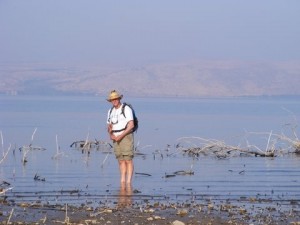 The Shouf Cedar Reserve is working tirelessly to protect Lebanon’s cedar forests from climate change.
The Shouf Cedar Reserve is working tirelessly to protect Lebanon’s cedar forests from climate change.
Fifteen years ago, civil war posed the greatest threat to Lebanon’s majestic cedar forests, but today climate change is their most prominent foe. The largest of Lebanon’s natural reserves and home to one quarter of the nation’s almost mythological cedar trees, Shouf Ceder Reserve has become a magnet for both local and foreign tourists. While such an influx of traffic could easily be detrimental to the reserve’s health, its manager Nizar Hani explained to CNN that they now have what it takes to achieve what even the most ardent activism in the region has been unable to: educate visitors and decision-makers about the importance of biodiversity while simultaneously improving the lot of people who live there.
Established as a UNESCO biosphere in 2005, the Shouf Cedar Reserve plays a crucial role in Lebanon’s natural history and present, a history that is in jeopardy.
Located at high altitudes, the country’s cedar trees have evolved to both withstand and depend on long bouts of wet weather and their seeds won’t come to fruition unless they have been buried beneath snow for at least two months. As climate change raises temperatures throughout the Middle East, snow falls less regularly, and melts sooner.
At the moment, Nizar Hani tells CNN that the effects of climate change are under control, and that eco-tourism activities are helping to spread awareness among people who have the capacity to ensure that the proper steps are taken to ensure continued protection. The increased tourism traffic also creates business opportunities for roughly 40 seasonal workers who live in and around the nature reserve.
Up to 42 products such as jam, olive oil, and herbs are grown and sold at Shouf, providing much-needed work opportunities, and locals invite tourists into their home as part of an authentic travel experience. These measures go a long way to create a sustainable tourism industry, but the forest are not yet in the clear.
At the end of last year, the forest fires that spread throughout dry Middle Eastern countries reached Lebanon as well. At one point, fire-fighters were so ill-equipped to handle 120 simultaneous fires that authorities urged people to step up their prayers. Warmer temperatures also encourage an increase in bark beetles and other insects.
During the civil war, Walid Jumblat planted land mines around the circumference of the reserve to protect it from encroaching loggers and rival militias. No amount of fire power can keep climate change at bay, but we can take other measures to ensure that less carbon is emitted into the atmosphere, and workers at the Shouf Reserve are doing their part to spread that ever-important message.
:: CNN
More on the Cedar Forests of Lebanon:
Lebanon is Working on Smokey the Bear to Protect Forests
World Watches Israel as Prayers Douse 120 Unsung Fires in Lebanon
Making Magestic (and Biblical) Cedars of Lebanon Sustainable in our Times



